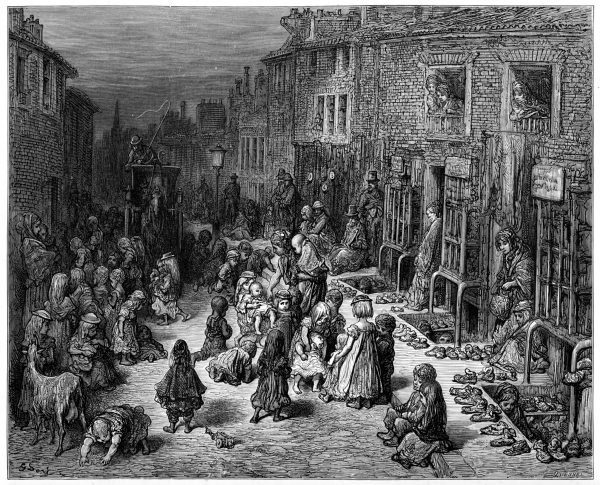This year is the 200th anniversary of the birth of the philosopher and political scientist Friedrich Engels. Mark Knell looks at what he can teach us about the consequences of socio-technical revolutions.
Mark Knell, Research Professor, NIFU
November 28th marks the 200th anniversary of the birth of Friedrich Engels. The film, The Young Karl Marx, captures the formative years of his lifelong intellectual partnership with Engels, from the first meeting with Marx in Paris in 1844 to the publication of The Communist Manifesto in 1848. Their collected works in English is 50 volumes, covering the period from 1835 to 1895. And a current German project, Die Marx-Engels-Gesamtausgabe (MEGA), has more than 60 volumes.
Engels argued in Paris that the working class was the main agent of revolutionary change in England. He reasoned that the Industrial Revolution made the health, wages, and living conditions of workers worse off in the industrial cities such as Manchester and Liverpool. Engels published the book as Die Lage der arbeitenden Klasse in England in 1845 (German); An English translation appeared in 1885 as The Condition of the Working Class in England.
It is not widely known that Engels was one of the first authors to use the expression «industrial revolution» (Industrielle Revolution) in reference to the contemporary innovation driven technological shift. Adam Smith had suggested an increasing division of labour be associated with the growth of manufacturers, but he had not used the term revolution.
The 1790 edition of Anderson’s History of Commerce (P. 941) was first to recognize that there was «an event happened which portended a considerable revolution in the manufactures of Great Britain». The revolution was the water frame spinning machine introduced by Arkwright in the early 1770s.
The idea of an «industrial revolution» was also part of an ongoing continental economic discourse in the early 19th century. David Landes noted that a diplomatic communiqué to Berlin in 1799 may have been the first time anyone used the term La revolution industrielle. Rising tensions between the industrialists (James Watt memorial in Westminster) and the industrial workers (Luddite response) led to an increasingly intense dialogue in Britain.

Although Engels was part of the continental discourse, his narrative described the ongoing economic transformation of the English society. He described how «the invention of the steam engine and of machines for spinning and weaving cotton … gave the impetus to the genesis of an industrial revolution». But Toynbee was the first to introduce the expression into the English discourse through a series of lectures on the industrial revolution, published posthumously in 1884, one year before the English edition of The Working Class appeared.
A key point of Engels was that GDP per worker grew steadily from 1770 to about 1840, while real wages remained constant. If so, you should see a decline in labour’s share of the national income and an increase in the gross profit rate (and investment). It is a story about technology, capital accumulation, and inequality (both income and geographical). Robert Allen (2009) called this event «Engel’s pause». It was not until the second industrial revolution, when steam powered industry and railroads became key activities, that real wages increased. This insight stimulated Marx’s thought on classical political economy.
Many ideas from Engels are relevant today. Rising inequality, caused by new, innovative digital technologies and an obsessively liberal market economy, lead to the decline of health, wages, and living conditions. This is, at least, the case in many countries, and the pandemic seems to have amplified this development. So what happens now is also a story about the rich getting richer and the poor staying poor.
Top illustration: Steel engraving factory manufacturing soap and perfume with steam power in Levallois-Perret France 1875. Getty.

